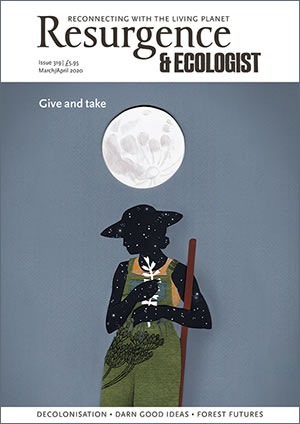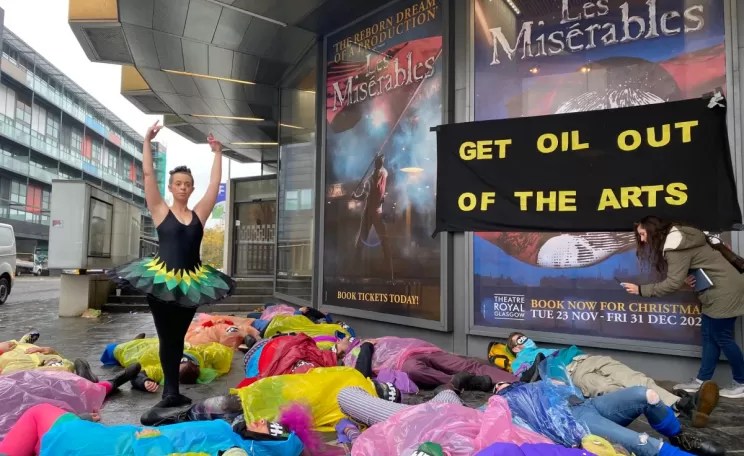We can – as another poster at the Women’s March said – be better than a bystander.
A woman in Rome stands amid a crowd of people dressed against the cold, watching a platform with speakers brandishing megaphones. On her placard, glowing in brilliant blue and green against the dreary winter day, are the words “I’m with her” and an arrow pointing to a picture of the Earth.
She was among millions of people from 24 different countries across the world who took part in the Global Women’s March earlier this year, an annual event organised to defend women’s rights, with a large focus on climate justice.
This article was first published in Resurgence & Ecologist magazine.
Why focus on women? In the words of Mary Robinson, climate justice is a feminist issue. As Oxfam America writes, when drought or other disasters strike, they hit the poorest first and hardest, and “since women make up an estimated 70 percent of those living below the poverty line, they are most likely to bear the heaviest burdens.”
Women

On the flip side, when women are involved in decision-making in their communities and at national level, they can help create solutions to the climate crisis that benefit everyone.
On 8 March the world celebrated International Women’s Day. Resurgence & Ecologist is marking the event with our first-ever women-only edition, including contributors and illustrators.
Catherine Early digs into the efficacy of reforestation as a climate solution, and Zion Lights explores the emotional impact of deciding not to have children for the sake of the planet.
In Arts we read about the unconventional upbringing of Irish painter Pauline Bewick and the influence of the landscape on her and her artist daughter Poppy Melia. In Keynotes, Skeena Rathor writes about faith and the sacred act of rebellion.
In Undercurrents, we pick apart the meaning of ‘decolonisation’ with a look at museums – including an interview with some actor-vists who are planning an ‘epic’ protest at the British Museum – and Kara Moses confronts the darker side of rewilding.
The daffodils and crocuses of early spring have already emerged. I even spotted some in December. It’s a bitter-sweet reminder of the chaos the climate crisis is causing, but we can still act. We can – as another poster at the Women’s March said – “be better than a bystander”.
This Author
Marianne Brown is editor of Resurgence & Ecologist magazine. This article was first published in Resurgence & Ecologist magazine.
Image: International Women's Day 2017. Molly Adams, Wikipedia.







